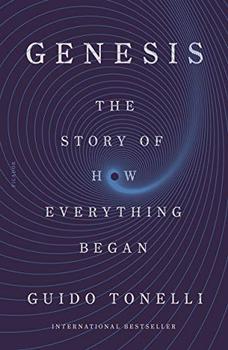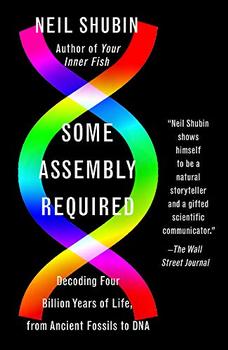Summary | Excerpt | Reviews | Beyond the book | Read-Alikes | Genres & Themes | Author Bio

The Microbes Within Us and a Grander View of Life
by Ed YongJoining the ranks of popular science classics like The Botany of Desire and The Selfish Gene, a groundbreaking, wondrously informative, and vastly entertaining examination of the most significant revolution in biology since Darwin - a "microbe's-eye view" of the world that reveals a marvelous, radically reconceived picture of life on earth.
Every animal, whether human, squid, or wasp, is home to millions of bacteria and other microbes. Ed Yong, whose humor is as evident as his erudition, prompts us to look at ourselves and our animal companions in a new light - less as individuals and more as the interconnected, interdependent multitudes we assuredly are.
The microbes in our bodies are part of our immune systems and protect us from disease. In the deep oceans, mysterious creatures without mouths or guts depend on microbes for all their energy. Bacteria provide squid with invisibility cloaks, help beetles to bring down forests, and allow worms to cause diseases that afflict millions of people.
Many people think of microbes as germs to be eradicated, but those that live with us - the micro biome - build our bodies, protect our health, shape our identities, and grant us incredible abilities. In this astonishing book, Ed Yong takes us on a grand tour through our microbial partners, and introduces us to the scientists on the front lines of discovery. It will change both our view of nature and our sense of where we belong in it.
Yong brings to his celebration of these single-celled organisms the two qualities you want in any science writer: enthusiasm for his subject, and a metaphorical mind. Yong's zeal for his subject matter is, if you'll pardon me, infectious; and his gift for metaphor and analogy helps make palpable the mind-bending scope of the subject matter ... but for many readers, I suspect there might simply be a limit to their depth of fascination with this tiny, teeming legion of life. The book has no real plot, but rather consists of discussion about hundreds of experiments in labs across the world, aimed at isolating, identifying, and understanding the role of these innumerable invaders. The characters Yong has found who spend their lives peering through microscopes or monitoring petri dishes are as colorful and diverse as the life they are chronicling, but there's a sort of sameness that creeps into the narrative...continued
Full Review
 (814 words)
(814 words)
(Reviewed by James Broderick).
The discovery of microbes – those single-celled organisms that exist by the millions in a drop of water, blood, or tiny patch of any living tissue – was a game-changer, scientifically speaking. The once-preposterous notion of invisible creatures inhabiting our world opened the door to understanding how germs infect the body, how cells replicate, and how life itself begins. And who is the genius we have to thank for it? A civil servant from the Netherlands whose job was to make sure wine bottles being sold were sufficiently filled.
 Antoni van Leeuwenhoek, the wine-gauger of the town of Delft in the seventeenth century has come to be known in scientific circles as the "father of microbiology." This civil servant who lacked a ...
Antoni van Leeuwenhoek, the wine-gauger of the town of Delft in the seventeenth century has come to be known in scientific circles as the "father of microbiology." This civil servant who lacked a ...

If you liked I Contain Multitudes, try these:

by Guido Tonelli
Published 2022
A breakout bestseller in Italy, now available for American readers for the first time, Genesis: The Story of How Everything Began is a short, humanistic tour of the origins of the universe, earth, and life - drawing on the latest discoveries in physics to explain the seven most significant moments in the creation of the cosmos.

by Neil Shubin
Published 2021
The author of the best-selling Your Inner Fish gives us a lively and accessible account of the great transformations in the history of life on Earth--a new view of the evolution of human and animal life that explains how the incredible diversity of life on our planet came to be.